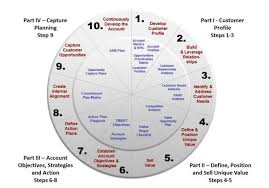How to Strengthen Cybersecurity For Your Business Data
Protecting sensitive data has become a major problem in the digital age as businesses rely more and more on technology. A comprehensive strategy for cybersecurity is required due to the ubiquity of cyber threats. In addition to being required by law, creating a safe digital environment is essential for upholding stakeholders’ and customers’ trust. This article thoroughly examines methods to strengthen company data cybersecurity and ensure resilience against possible threats.
Understanding the Cybersecurity Landscape
It is essential to have a solid understanding of the ever-changing nature of cyber threats to strengthen the cybersecurity of your company. Phishing and ransomware attacks are just two examples of the many methods that cybercriminals use to commit their crimes; they even use more complex forms of malware. It is possible to develop a proactive security strategy by regularly upgrading your knowledge of emerging threats. This will help you stay one step ahead of cyber enemies in the continuing struggle against them.
Implementing Multi-Factor Authentication
The use of multi-factor authentication, also known as MFA, is an essential component in improving cybersecurity. In addition to relying merely on passwords, multi-factor authentication (MFA) adds a layer of protection by forcing users to authenticate their identity through several ways, such as biometrics or one-time passcodes. Through the implementation of this additional measure, the danger of unauthorized access is greatly reduced, thus providing a robust defense against cyber threats that aim to exploit password flaws.
Regularly Updating Software and Systems
Older versions of software and computer systems provide cybercriminals with entry points that are susceptible to attack. When it comes to resolving these vulnerabilities, regular updates and fixes are necessary. By utilizing automated systems for updates, prompt response to emerging threats can be ensured, hence reducing the window of opportunity for future cyber invasions. The adoption of this preventative strategy helps to ensure that the digital infrastructure remains vulnerable.
Conducting Regular Security Audits
The significance of conducting security audits regularly cannot be emphasized. These audits serve as a full study of the cybersecurity posture of your firm, finding vulnerabilities and evaluating the efficiency of the security solutions that are already in place. Businesses cannot only identify potential vulnerabilities through periodic assessments but also take preventative measures to resolve such vulnerabilities before bad actors exploit them.
Securing Endpoints and Devices
When it comes to protecting your company’s data, endpoints and devices are the first line of protection. Securing these entry points requires the implementation of robust endpoint protection solutions, which should include sophisticated antivirus software and firewalls. Maintaining your digital infrastructure’s resilience against the ever-evolving strategies employed by cybercriminals requires consistent monitoring, as well as frequent changes to the security mechanisms that are in place.
Encrypting Sensitive Data
In the realm of cybersecurity, data encryption is an essential component, particularly when dealing with sensitive information. When encryption techniques are employed, data is safeguarded both during transit and while at rest. This renders the data unreadable to any unauthorized parties. If there is a breach, this additional layer of security becomes extremely important, greatly reducing the possible impact on the confidentiality of sensitive data.
Establishing a Cybersecurity Culture
Encouraging a culture of cybersecurity awareness within your company is essential to a comprehensive defensive plan. Employee education is essential; phishing attempt detection, social engineering technique identification, and cybersecurity hygiene awareness are just a few of the topics covered in training sessions that help create a watchful workforce. Educating staff members on their accountability for protecting confidential data is a preventative step in lowering internal risks.
Collaborating with IT Services
The cybersecurity environment can differ depending on the region; therefore, working with top-rated Cincinnati IT services offers a special benefit. IT services experts focus on comprehending the unique cyber threats that firms must contend with. Organizations can effectively address regional concerns by customizing their cybersecurity measures by leveraging their knowledge. IT services take a proactive stance, fusing regional knowledge with international best practices to fortify against online attacks.
Conclusion
A comprehensive plan is necessary to effectively preserve company data due to the varied nature of cybersecurity. Every action you take, such as putting multi-factor authentication into place, carrying out frequent security audits, encouraging a culture of cybersecurity awareness, and working with local experts, adds to a multilayered defense against potential cyber threats. Businesses that adopt these tactics not only safeguard their data but also establish a strong cybersecurity posture, preserving stakeholders’ and customers’ trust in a constantly changing digital environment.







